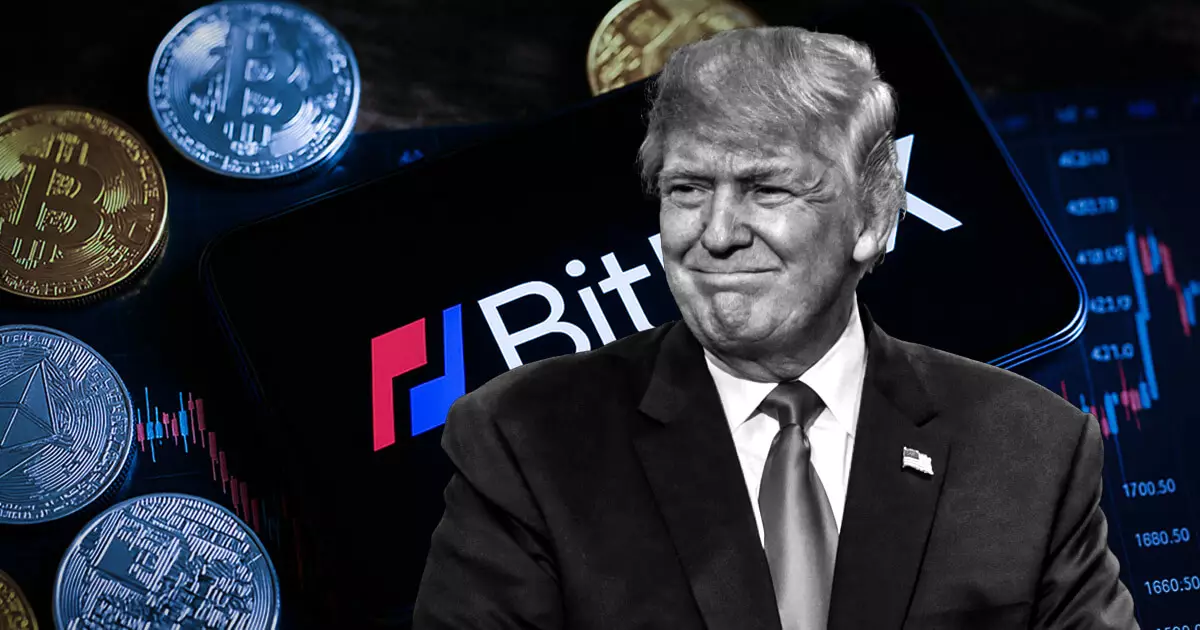The recent pardoning of BitMEX co-founders Arthur Hayes, Benjamin Delo, and Samuel Reed by former President Donald Trump has stirred up a whirlwind of mixed sentiments in the crypto and financial sectors. With their pardons coming over three years after they admitted to serious violations of U.S. anti-money laundering laws, the action raises crucial questions about the long-term implications for cryptocurrencies and the legal frameworks surrounding them. Are these pardons a legitimate step toward correcting a misjudged legal framework, or merely a backdoor favor to influential figures in the crypto arena?
The notion that the trio was subjected to politically motivated enforcement can’t be diminished. Delo asserted that they were wrongfully made examples of while advocating for an outdated regulatory structure that may not be well-suited to the rapid innovation within the crypto space. These sentiments carry weight—technology evolves exponentially, while regulatory frameworks often lag, leading to misapplications of justice against visionaries pushing the envelope.
BitMEX: The Lighting Rod for Regulatory Accountability
Established in 2014, BitMEX quickly became synonymous with high-leverage trading and minimal registration hurdles. In an industry often plagued by issues of compliance and regulation due to its decentralized nature, BitMEX’s operations served as a lightning rod for scrutiny. Critics argue that the founders’ pardons could either validate caution among emerging companies in the sector or embolden lax compliance practices, given the relatively light consequences they faced before their pardons.
It’s undeniable that BitMEX pushed the boundaries, facilitating billions in trades while turning a blind eye to compliance checks like identity verification. Prosecutors claimed that the platform became a “hub for illicit financial activity,” and the failure to enforce the ban on U.S. traders was glaring. In penalizing them, the federal government set a precedent that underscored the necessity of regulations in an otherwise chaotic landscape. However, Trump’s action raises the concern of favoritism, as wealthy and powerful individuals can leverage their status to circumvent the very laws that ordinary citizens must follow.
A Dangerous Precedent for Future Regulations
While Granting pardons is an executive prerogative, the act of pardoning individuals whose actions could arguably undermine public trust in both regulatory institutions and financial markets can have perilous consequences. The court’s findings suggested that BitMEX’s leadership knowingly ignored their responsibilities, and endorsing this behavior through pardons sends conflicting signals to other crypto entities considering similar risky maneuvers.
The importance of accountability cannot be overstated, especially as innovations in blockchain technology continue to evolve. By allowing prominent figures to retreat from responsibility, are we encouraging others to believe that they too can skirt the edges of legality without facing repercussions? While innovation is undoubtedly vital for financial advancement, it should never occur at the expense of ethical safeguards and regulatory integrity.
Why the Crypto Community Should Reflect
The BitMEX pardons present an opportunity for self-reflection within the cryptocurrency community. Industry players need to ask themselves: Are we prepared for the consequences of our actions? Can we operate within a framework that promotes innovation without compromising the rule of law?
As crypto continues its maturation into a legitimate alternative financial instrument, maintaining a vigilant approach to compliance is essential. The allure of easy profits should never eclipse the need for responsible business practices. The lessons learned from the BitMEX case should act as a call-to-arms for crypto entrepreneurs, urging them to advocate for more robust compliance measures to safeguard their industries from similar fallout.
The real challenge facing the industry now is standardization—an industry-wide consensus on ethical practices that goes above and beyond basic legal obligations. Unfortunately, the pardon of Hayes, Delo, and Reed brings with it the specter of impunity, challenging the community to rise to the occasion and take responsibility for their collective future. The stakes are high, and the actions taken today will shape the future of cryptocurrency regulation for years to come.

